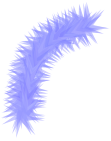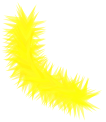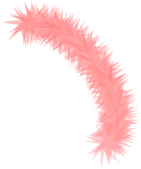

.





‘Knowledge is power’



World’s
encyclopedic
knowledge
compacted
in
your
hand





There’s a place lurking beneath the Internet you use every day.
It’s a hidden underbelly, home to both rogues and political activists, and
accessed only with the help of specially designed anonymizing software.
It’s a secretive place, where Arab Spring dissidents can hide their digital
tracks, a place where whistleblowers can reach out safely to scoop-seeking
media outlets. And, yes, it’s also a dangerous place, where a lot of illicit,
underground nastiness occurs.
There, you’ll find a society that lurks intentionally in the blind spots of
search engines. Some call it the Darknet. All call it hard to reach—though
it’s hardly impregnable, given last week’s news of security vulnerabilities, as
well as site takedowns following the arrest of an alleged pornographer. Like
a demilitarized zone or a lawless land, it’s not a place most people
visit—nor should they. But by the time you’re done reading this article, you’ll
know more about this shadowy, parallel online universe than Bing or Yahoo
ever will.
Your chances of finding these clandestine networks, much less specific
content on them, are virtually nil unless someone already in the know points you in the right direction.
And it’s no wonder why. Consider Onionland, the major Darknet hiding inside the anonymity-protecting Tor network, which was the focus of
last week’s hubbub. (Fun fact: The Onionland name pays homage to Tor, which was originally an acronym for “The Onion Router.”)
Even the major directories aren’t completely reliable. Like a swamp, Onionland is constantly shifting, with Hidden Services appearing and
vanishing on a daily basis. (Again, more on Hidden Services later.) A lot of sites listed on Onionland directories are simply gone now.
Heck, even the directories themselves sometimes shift URLs, and you have to track down their new location, either within Onionland itself
or on the .onion subreddit.
That said, three common Onionland starting points are The Hidden Wiki, TorDir, and TorLinks. All the directories in Onionland always point
to Torch as a search engine of onions, but it never works properly. You can get to Torch’s front page just fine, but individual searches time
out. Every. Single. Time.
Once you’re on a directory, one thing becomes overwhelmingly obvious: A lot of dirty, downright illegal stuff happens in Onionland. You’ll
quickly find links to credit-card scammers, forged documents and currency, weapons dealers, gambling sites, marketplaces for every vice
imaginable, hacker havens, the types of illegal and disgusting porn that get chased off the Surface Web, and even the notorious Silk Road
trading post. Next

Delving into the Darknet
Darknets are small niches of the “Deep Web,” which is itself a catch-all
term for the assorted Net-connected stuff that isn’t discoverable by the
major search engines. (BrightPlanet has a stellar Deep Web primer.)
Most of the flotsam and jetsam found in the Deep Web are
unintentional cast-offs: dynamic database queries and odd file formats
that search engines aren’t equipped to deal with. Darknets, on the
other hand, deliberately hide from the prying eyes of the searchable
Web. They cloak themselves in obscurity with specialized software
that guarantees encryption and anonymity between users, as well as
protocols or domains that the average webizen will never stumble
across.
Diving into Onionland—after you’ve installed the proper software and
taken the proper safety precautions; more on that later—is awfully
reminiscent of using the Surface Web of yesteryear. Since search
engines don’t trawl the depths of the Darknet, the best guide to its
realms are simple link directories.
Yes, the underbelly of the Web has yet to move beyond the old Yahoo
days.

1 2

Please raise the vol to listen to the
lady airing awe @ the SINGLE author encyclopedia
You may also like:
Future humans to look like Pokémon characters?
Belief is useless says exChristian Franky Schaeffer
Men and women see things differently
Female Taliban Suicide Bomber Hates The Idea Of Virgins In Heaven
Empowering Book Newsletter






WOMEN’S POWER: ITS PAST, ITS PRESENT, ITS FUTURE: FEMOCRACY
WEB PAGES
OUR OFFERING
UPLOADED ITEMS
OUR EMAIL
kri200@womenspowerbook.org
QUESTION




















